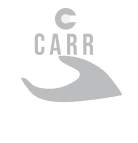If you or someone you know has struggled with addiction, then you know that the journey to recovery can be a challenging and often overwhelming process. This is where sober living comes into play.
Sober living is a supportive, community-based housing option for individuals in recovery from addiction. It provides a safe and structured environment for residents to live in while they work on maintaining their sobriety and rebuilding their lives. Sober living homes often have strict rules and guidelines, such as maintaining a drug and alcohol-free environment, attending regular meetings, and participating in group activities.
We will provide an inside look into the day-to-day life of a sober living resident. We will explore the morning routines, therapy and recovery activities, leisure time, chores and responsibilities, and evening routines that make up a typical day in sober living. Our goal is to give you a better understanding of what it’s like to live in a sober living home and how it can support a successful recovery from addiction. So, let’s dive in and explore the world of sober living together!

Morning Routine
The morning routine in sober living can vary depending on the specific rules and guidelines of the home, but there are some common practices that most sober living homes follow.
Typically, residents in sober living wake up at a designated time, which may vary from home to home. They may also have to complete specific morning chores, such as cleaning their rooms or common areas, doing laundry, or preparing breakfast for themselves and other residents.
Some sober living homes may also have mandatory morning meetings or check-ins where residents can discuss their goals for the day or any struggles they may be facing. These meetings can help residents start their day with a positive and supportive mindset and help them feel accountable for their actions.
Breakfast is an important part of the morning routine in sober living, as it provides residents with the energy they need to start their day. Many sober living homes have communal kitchens where residents can prepare their meals together, fostering a sense of community and support.
The morning routine in sober living is designed to promote structure, accountability, and healthy habits. By starting their day with a positive mindset and engaging in healthy habits, residents in sober living can set themselves up for success in their recovery journey.
Typical Routine
Wake up at a designated time
Make the bed and tidy up living area
Shower and get dressed
Attend a morning meeting or check-in (if required)
Prepare breakfast or participate in communal breakfast (if applicable)
Complete morning chores (if required)
Take any necessary medications
Plan out the day and set goals for sobriety and recovery

Therapy And Recovery Activities
In addition to providing a structured living environment, sober living homes often offer a variety of therapy and recovery activities to help residents maintain their sobriety and work towards their long-term recovery goals.
Group therapy is a common activity that residents in sober living may participate in. Group therapy sessions are typically led by a licensed therapist and involve a group of residents discussing their experiences, feelings, and struggles with addiction. Group therapy provides a supportive and safe environment for residents to share their experiences and receive feedback from their peers, while also building a sense of community and connection.
Individual therapy may also be available for residents who need more personalized support. This type of therapy involves one-on-one sessions with a licensed therapist, where residents can explore their personal experiences and work on specific goals related to their recovery.
Another common activity in sober living is attendance at 12-step meetings such as Alcoholics Anonymous (AA) or Narcotics Anonymous (NA). These meetings provide residents with a supportive community of peers who are also in recovery from addiction. Attending 12-step meetings helps residents build a strong support network and provides a space for them to discuss their struggles and successes in their recovery journey.
Participating in therapy and recovery activities can help residents in their recovery in a number of ways. By discussing their experiences and emotions in therapy and group sessions, residents can gain insights and perspectives that can help them navigate challenges and triggers. They can also build a sense of community and support, which is essential in maintaining long-term sobriety. Additionally, by participating in 12-step meetings, residents can learn new coping skills and strategies, and gain a greater understanding of addiction and recovery.
Therapy and recovery activities play a crucial role in the sober living experience, providing residents with the tools and support they need to maintain their sobriety and achieve lasting recovery.
Activities
Group therapy sessions
Individual therapy sessions
12-step meetings (such as Alcoholics Anonymous or Narcotics Anonymous)
Mindfulness and meditation exercises
Yoga or other exercise classes
Art therapy or music therapy sessions
Educational workshops on addiction and recovery
Life skills training, such as job interview preparation or financial management
Outdoor activities, such as hiking or camping trips
Volunteer work or community service projects.

Leisure Time
Residents in sober living homes also have leisure time to engage in activities that promote relaxation, enjoyment, and personal growth. Some common leisure activities in sober living homes include exercising, reading, journaling, and participating in recreational activities like sports, hiking, or arts and crafts.
Exercising is a particularly popular activity in sober living homes, as it can help residents build physical strength and improve their mental health. Exercise can also help to reduce stress and anxiety, which are common triggers for substance use.
Reading is another popular leisure activity in sober living homes. Many residents find that reading helps them to relax, learn new things, and broaden their perspectives. Some sober living homes even have book clubs or reading groups, which provide residents with a sense of community and a chance to engage in thoughtful discussions.
Participating in recreational activities is also important for residents in sober living homes. By engaging in sober recreational activities, residents can learn new skills, meet new people, and build a sense of purpose and enjoyment outside of substance use.
Having positive, sober activities to fill one’s free time is essential in maintaining long-term sobriety. Boredom and lack of purpose can be triggers for substance use, so engaging in meaningful leisure activities can help residents stay focused on their recovery goals. Additionally, having sober leisure activities provides residents with an opportunity to form positive social connections and build a sense of community and support outside of substance use.
Leisure time is an important aspect of the sober living experience, providing residents with an opportunity to engage in activities that promote relaxation, enjoyment, and personal growth. By participating in positive, sober leisure activities, residents can stay focused on their recovery goals and build a meaningful and fulfilling life in sobriety.
Leisure Activities
Exercising, such as yoga, weightlifting, or running
Reading books, magazines, or newspapers
Journaling or writing
Engaging in arts and crafts, such as painting, drawing, or knitting
Participating in sports, such as basketball, volleyball, or soccer
Hiking, camping, or outdoor adventures
Playing board games, cards, or other games with fellow residents
Learning new skills, such as cooking or playing an instrument
Attending cultural events, such as concerts or theater productions
Volunteering in the community.

Chores And Responsibilities
Residents in sober living homes are typically assigned chores and responsibilities to maintain the cleanliness and upkeep of the home. These chores and responsibilities can include cleaning common areas, cooking meals, doing laundry, or participating in group activities.
Assigning chores and responsibilities to residents in sober living homes serves several purposes. First, it helps to build a sense of accountability among residents. By assigning tasks and chores, residents are encouraged to take ownership of their living space and contribute to the overall wellbeing of the community. This sense of responsibility can be particularly beneficial for individuals who may have struggled with addiction and have a history of avoiding responsibilities.
Second, assigning chores and responsibilities can also help to build a sense of community among residents. By working together to maintain the cleanliness and upkeep of the home, residents can form positive relationships and learn to rely on each other for support. These group activities can help to break down social barriers and promote a sense of unity among residents.
Finally, chores and responsibilities can also help to build practical skills among residents. For example, by assigning cooking responsibilities, residents can learn healthy eating habits and gain experience in meal planning and preparation. By assigning cleaning responsibilities, residents can learn valuable skills in organization and home management.
Chores And Responsibilities
Cleaning common areas, such as the kitchen, bathrooms, or living room
Doing laundry
Cooking meals or preparing snacks
Participating in group activities, such as meetings or outings
Attending to personal hygiene, such as showering or brushing teeth
Maintaining personal living spaces, such as bedrooms or bathrooms
Completing assigned tasks or projects, such as cleaning out a storage area or organizing a closet
Running errands, such as grocery shopping or picking up supplies for the home
Greeting guests or new residents and helping them get settled in
Assisting with administrative tasks, such as answering phones or scheduling appointments.

Evening Routine
The evening routine in sober living homes is just as important as the morning routine. A structured evening routine can help residents wind down after a long day and promote healthy habits that support their sobriety.
A typical evening in sober living may involve a communal dinner, which provides residents with an opportunity to connect and socialize over a meal. Dinner is often prepared by residents themselves on a rotating basis and may include healthy, balanced meals that support a sober lifestyle.
After dinner, residents may attend evening meetings or activities, such as 12-step meetings or group therapy sessions. These meetings and activities provide an opportunity for residents to reflect on their day, share their experiences, and receive support and feedback from their peers.
Some sober living homes may also offer evening leisure activities, such as movie nights, game nights, or other group activities. These activities provide residents with an opportunity to engage in positive, sober leisure activities that promote relaxation and enjoyment.
Having a structured evening routine is important for maintaining sobriety. By filling their evenings with positive and healthy activities, residents can avoid boredom and reduce the risk of relapse. Additionally, having a structured routine can help to establish healthy sleep habits, which are essential for maintaining good mental and physical health.
The evening routine in sober living homes is designed to promote relaxation, community, and healthy habits that support sobriety. By following a structured routine, residents can establish a sense of normalcy and routine in their daily lives, which can be a key factor in achieving long-term sobriety.
Evening Activities
Communal dinner, often prepared by residents on a rotating basis
Evening meetings or group therapy sessions
Leisure activities, such as movie nights or game nights
Engaging in hobbies or personal interests, such as reading or journaling
Participating in exercise or yoga classes
Practicing mindfulness or meditation
Cleaning or organizing personal living spaces
Preparing for the next day, such as setting goals or making plans
Taking time for self-care, such as taking a bath or practicing relaxation techniques
Going to bed at a consistent time to promote healthy sleep habits.

sober living resident
a final note
We hope that these valuable insights into the world of sober living helps you to understand what it’s like to be a resident in such a supportive community. We discussed the morning routine, therapy and recovery activities, leisure time, chores and responsibilities, and evening routine that make up a typical day in sober living.
Sober living homes provide a safe and structured environment for individuals in recovery from addiction. Through therapy and recovery activities, residents can develop the skills, support, and sense of community they need to maintain sobriety and achieve long-term recovery goals. Engaging in positive leisure activities, taking on chores and responsibilities, and following a structured routine all contribute to building accountability, community, and practical skills that are essential in maintaining sobriety.
If you or someone you know is struggling with addiction, we encourage you to consider sober living as a supportive option for recovery. At Zen Mountain Sober Living House, we are dedicated to providing a safe and supportive community for individuals in recovery from addiction. Our goal is to help residents build the skills and support they need to achieve long-term recovery goals and lead fulfilling lives in sobriety. Remember, recovery is possible, and with the right support, you can achieve a life free from addiction.




